In 1990, the Charter for a New Europe (aka Charter of Paris) was signed. As a signatory of the Helsinki Final Act, the United States signed the Charter of Paris:
We, the Heads of State or Government of the States participating in the Conference on Security and Co-operation in Europe, have assembled in Paris at a time of profound change and historic expectations. The era of confrontation and division of Europe has ended.
We declare that henceforth our, relations will be founded on respect and co-operation. Europe is liberating itself from the legacy of the past. The courage of men and women, the strength of the will of the peoples and the power of the ideas of the Helsinki Final Act have opened a new era of democracy, peace and unity in Europe.
Ours is a time for fulfilling the hopes and expectations our peoples have cherished for decades : steadfast commitment to democracy based on human rights and fundamental freedoms; prosperity through economic liberty and social justice; and equal security for all our countries.
The Ten Principles of the Final Act will guide us towards this ambitious future, just as they have lighted our way towards better relations for the past fifteen years. Full implementation of all CSCE commitments must form the basis for the initiatives we are now taking to enable our nations to live in accordance with their aspirations.
… The participation of both North American and European States is a fundamental characteristic of the CSCE; it underlies its past achievements and is essential to the future of the CSCE process. An abiding adherence to shared values and our common heritage are the ties which bind us together. With all the rich diversity of our nations, we are united in our commitment to expand our co-operation in all fields. The challenges confronting us can only be met by common action, co-operation and solidarity.
Human Dimension
We declare our respect for human rights and fundamental freedoms to be irrevocable. We will fully implement and build upon the provisions relating to the human dimension of the CSCE.
Proceeding from the Document of the Copenhagen Meeting of the Conference on the Human Dimension, we will cooperate to strengthen democratic institutions and to promote the application of the rule of law. To that end, we decide to convene a seminar of experts in Oslo from 4 to 15 November 1991.
Economic Co-operation
We stress that economic co-operation based on market economy constitutes an essential element of our relations and will be instrumental in the construction of a prosperous and united Europe. Democratic institutions and economic liberty foster economic and social progress, as recognized in the Document of the Bonn Conference on Economic Co-operation, the results of which we strongly support.
…We are convinced that our overall economic co-operation should be expanded, free enterprise encouraged and trade increased and diversified according to GATT rules. We will promote social justice and progress and further the welfare of our peoples. We recognize in this context the importance of effective policies to address the problem of unemployment.
We reaffirm the need to continue to support democratic countries in transition towards the establishment of market economy and the creation of the basis for self-sustained economic and social growth, as already undertaken by the Group of twenty-four countries. We further underline the necessity of their increased integration, involving the acceptance of disciplines as well as benefits, into the international economic and financial system.
We recognize the important role of the European Community in the political and economic development of Europe. International economic organizations such as the United Nations Economic Commission for Europe (ECE), the Bretton Woods Institutions, the Organisation for Economic Co-operation and Development (ECD), the European Free Trade Association (EFTA) and the International Chamber of Commerce (ICC) also have a significant task in promoting economic co-operation, which will be further enhanced by the establishment of the European Bank for Reconstruction and Development (EBRD). In order to pursue our objectives, we stress the necessity for effective co-ordination of the activities of these organizations and emphasize the need to find methods for all our States to take part in these activities.
Environment
We recognize the urgent need to tackle the problems of the environment and the importance of individual and co-operative efforts in this area. We pledge to intensify our endeavours to protect and improve our environment in order to restore and maintain a sound ecological balance in air, water and soil. Therefore, we are determined to make full use of the CSCE as a framework for the formulation of common environmental commitments and objectives, and thus to pursue the work reflected in the Report of the Sofia Meeting on the Protection of the Environment.
We stress the need for new measures providing for the systematic evaluation of compliance with the existing commitments and, moreover, for the development of more ambitious commitments with regard to notification and exchange of information about the state of the environment and potential environmental hazards. We also welcome the creation of the European Environment Agency (EEA).
We welcome the operational activities, problem-oriented studies and policy reviews in various existing international organizations engaged in the protection of the environment, such as the United Nations Environment Programme (UNEP), the United Nations Economic Commission for Europe (ECE) and the Organisation for Economic Co-operation and Development (OECD). We emphasize the need for strengthening their co-operation and for their efficient co-ordination.
[Note: In the above Document on the Copenhagen Conference, read the Chairman’s Statement on page 25 keeping in mind the activities of groups like Code Pink operating in our capitol building and their behavior during hearings.]
On the Federation of American Scientists website, there is a page about the Charter of Paris:
Status
At the first summit meeting since Helsinki, the Heads of State or Government adopted the Charter of Paris, aimed at defining the OSCE’s identity in a new international environment and taking advantage of new oppotunities for cooperation. The Charter of Paris of November 1990 marked the turning point in the history of the Organization for Security and Cooperation in Europe (OSCE) in the post-Cold War era, serving as a transition for the OSCE from its role as a forum for negotiation and dialogue to an active operational structure. The Conference on Security and Cooperation in Europe (CSCE) was renamed the Organization on Security and Cooperation in Europe effective 1995. From 1974 to 1990, the CSCE (as its name implies) worked as one continuous conference. The Paris Summit Meeting in 1990 marked the beginning of institutionalization, reflecting the changes in Europe and the new challenges for the post-Cold War period.
Provisions
The Charter of Paris for a New Europe includes new “Guidelines for the Future” together with the establishment of standing institutions like the Conflict Prevention Centre in Vienna, the Office for Free Elections in Warsaw and the Secretariat in Prague. The Charter also established three main political, consultative bodies: The Council of Ministers, consisting of foreign ministers from the participating States; a Committee of Senior Officials to assist the Council and manage day-to-day business; and regular summit meetings of heads of State or Government.
Summit Meetings for the Americas
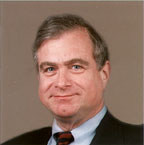 Between 1992 and 1996, Sandy Berger was the Chairman of the Deputies Committee of the National Security Council. There are no red flags there – unless you happen to have read an obscure little book titled, “Summitry in the Americas: A Progress Report” by Richard Feinberg, the “Architect of the Free Trade of the Americas”. The book, was written in 1997 and in it, Feinberg details the history leading up to the first Summit of the Americas in Miami in 1994.
Between 1992 and 1996, Sandy Berger was the Chairman of the Deputies Committee of the National Security Council. There are no red flags there – unless you happen to have read an obscure little book titled, “Summitry in the Americas: A Progress Report” by Richard Feinberg, the “Architect of the Free Trade of the Americas”. The book, was written in 1997 and in it, Feinberg details the history leading up to the first Summit of the Americas in Miami in 1994.
In the book, Feinberg writes (emphasis added):
- +The deputies were the focal point of policy...
- “The deputies were the focal point of policy making on the trade initiative and, as the summit approached, they devoted much more time to it than any other single initiative (figure 4.1: US Decision Making on Trade Policy). A number of NEC deputies–including Charlene Barshefsky from USTR, Joan Spero and her alternate, Daniel Tarullo, from State and Robert Kyle from the NEC staff– were experts on trade policy. NEC co-chairs Bowman Cutter and Samuel Berger had considerable trade experience in both the public and private sectors” [pg 75].
“There was no NSC subcommittee, no standing cabinet-level group, no Deputies Committee (DC) dedicated to hemispheric affairs. However, this very lack of focus and coordination had made it possible for a few individuals to circumvent bureaucratic procedures and gain presidential approval of the summit. [pg 79]
Administration officials realized that a massive undertaking like the summit would require more formal interagency coordination…. Deputy National Security Adviser Samuel Berger convened the first DC on the summit on 7 February 1994 to discuss summit themes. Deputies present included Leon Fuerth (Office of the Vice President), Bowman Cutter (NEC), Joan Spero (State), Lawrence Summers (Treasury), Charlene Barshefsky (USTR), Carol Lancaster (USAID), and Frank Wisner (Defense). Commerce, US Mission to the United Nations, the Environmental Protection Agency (EPA), the Joint Chiefs of Staff (JCS), and the NSC were also represented… [pg 80]
The Presidential Decision Directive (PDD) on hemispheric affairs, which set the framework for administration policy and would be signed by the president was drafted at middle and working levels with senior-level clearances obtained by NSC staff by telephone. Not once had the principals or deputies met to consider the PDD. [pg 80]
…That foreign policy is economic policy is not a new finding. In preparing an important foreign policy initiative such as the Summit of the Americas, the greater novelty was involving many agencies whose primary jurisdiction is domestic. Agencies such as Interior, EPA, Transportation, Education, Labor and Justice have developed international sections with interests in Latin America and the Caribbean. [pg 82]
[Note: The creation of international divisions in domestic government departments began during the Reagan Administration when he signed the La Paz Treaty establishing an international zone on the U.S. Mexican Border managed by the EPA Administrator “in partnership” with their Mexican counterpart.]
One place that has an easy to access list of the Presidential Decision Directives signed by Clinton is the website of the American Federation of Scientists. Presumably the PDD mentioned in Feinstein’s book “The Presidential Decision Directive (PDD) on hemispheric affairs” on Page 80, is:
PDD-28 U.S. Policy Toward Latin America
“The implementation of these recommendations is a priority objective of U.S. foreign policy.”
“…the United States will seek to enlist the countries of the region.in a Western Hemisphere Community of Democracies.”
“The U.S. will host a Western Hemisphere Summit meeting in December, 1994 to build hemisphere-wide support- for these elements of the Western Hemisphere Community of Democracies…”
Here is the big one:
The United States will:
Make good governance a central theme of our hemispheric policies. The Administration’s domestic emphasis on “Reinventing Government” should be joined to regional efforts to promote efficient, accountable and honest government at national, state and local levels.
[Think Pocahontas – Elizabeth Warren]
Encourage the development of indigenous NGOs, including those which monitor human rights and critically assess government policies.
With the passage of NAFTA, the President announced his intention to pursue free trade agreements (FTAs) with eligible countries in the hemisphere. We should seize on the opportunity of locking in hemispheric reform by announcing a program of continuous trade expansion.
Feinberg included two organization charts in his book that graphically show the degree of focus on planning for the summit. And it isn’t at all surprising that Berger was involved in trade policy and the summit when you consider that before his stint with the Clinton Administration, Berger was a partner and the head of the international trade division of the law firm of Hogan & Hartson.
Continuing with Feinberg’s book on Summitry, he wrote:
“At the initial meetings of the committee, the national security agencies were invited, including the Department of Defense (DOD), JCS, and Central Intelligence Agency (CIA). But traditional security issues, especially military issues, were not prominent on the summit agenda. Political, economic and social issues had largely replaced traditional security issues on the US hemispheric agenda; implicitly, the United States had redefined hemispheric security as democratic stability, economic progress, and social integration. Nor were CIA threat assessments relevant to summit preparation. As time went on, the seats formerly allocated to the defense and intelligence chiefs were occupied by representatives from such agencies as Commerce, EPA, and the agency most directly focused on the new security issues of international crime, the Department of Justice.” [pg 82].
Click on the image to go to the FTAA website to read the Summit documents.
So now you know why Sandy was a Burglar. He took documents that would prove his treason.
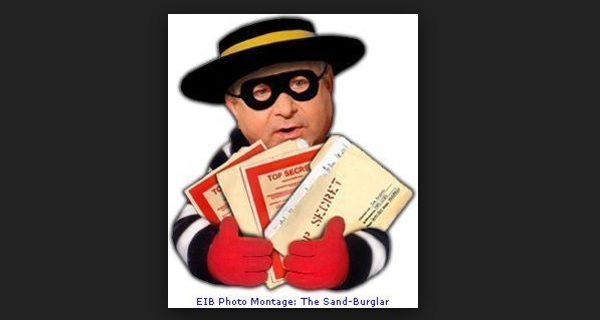
Fact Sheet President’s Speech at the Summit of the Americas
“We have a great vision before us: a fully democratic hemisphere, bound together by good will and free trade. That is a tall order. It is also the chance of a lifetime. And it is the responsibility we share.”
President George W. Bush, April 21, 2001
On September 11, 2001, Colin Powell, Secretary of State was in Lima, Peru to sign the Inter-American Democratic Charter.
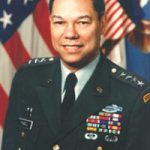
The terrorist catastrophes in New York and Washington swept away media comment on other global events taking place on September 11, 2001. Virtually obscured was the historic agreement reached that day in Lima by the foreign ministers of the Organization of American States (OAS) on the Inter-American Democratic Charter…
The OAS foreign ministers met scarcely an hour after the terrorist attacks. As they gathered in Lima the previous evening, there was apprehension that one or more of them might introduce wording that would blunt some of the Charter’s teeth. By the time the meeting was underway, it was clear that the terrorist attacks had removed that concern. Instead of departing immediately for the airport, Secretary of State Colin Powell delayed his return flight to Washington for several hours in the hope that he could leave with a strong and unanimously approved Charter. In a dramatic but subdued intervention, he invited his colleagues to accept the fairly robust draft that had been referred to this Special Assembly of the Organization by the OAS Permanent Council.
While giant TV screens outside the hotel replayed the tumbling towers, the Charter was adopted by acclamation and Powell left for the airport. He had rightly judged the impact that his decision to remain even briefly at the meeting would have on the other foreign ministers. On the first day of the terrorist crisis, Powell had given priority to multilateralism. [Pg.2]

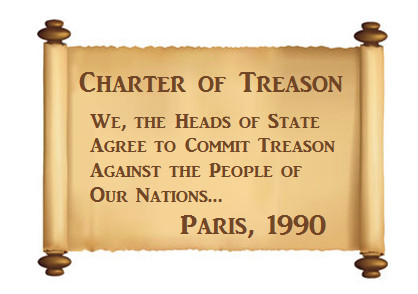
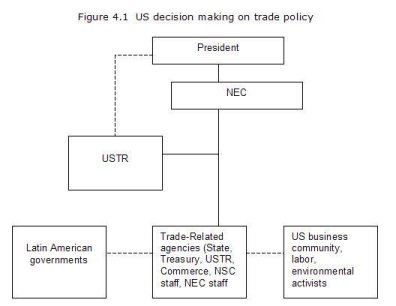
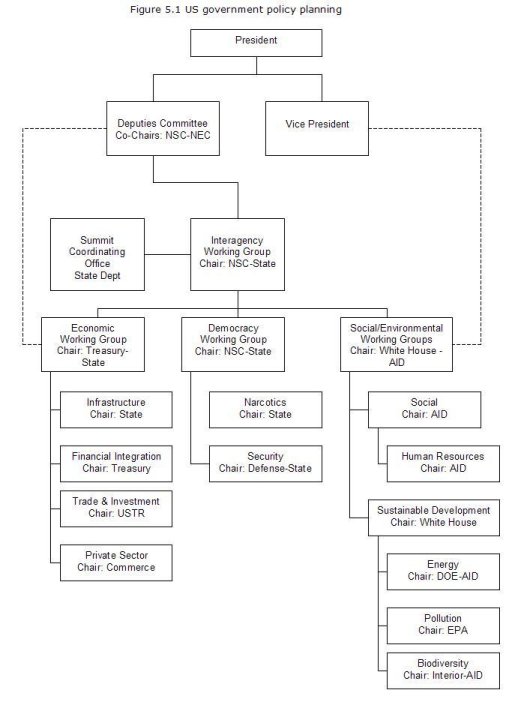
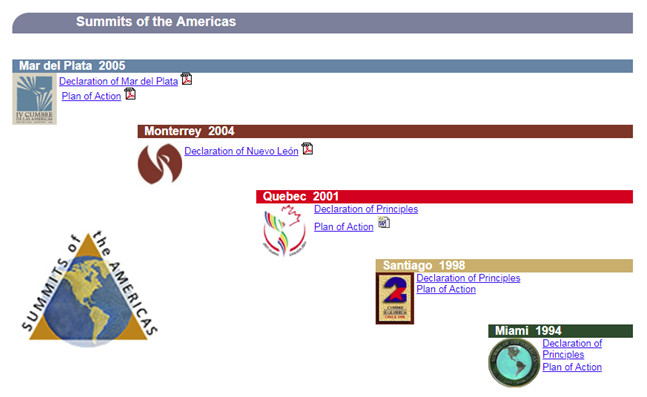
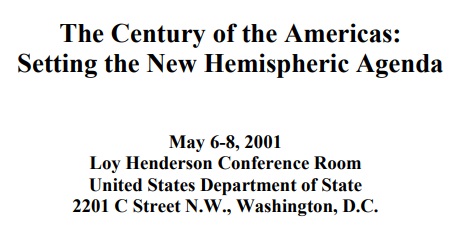





2 Comments
Kristin
Ha- oh this is great “this very lack of focus and coordination had made it possible for a few individuals to circumvent bureaucratic procedures and gain presidential approval ” So, a few guys just walk in and suddenly take over telling everyone they’re the boss, and no one is there to tell them to go pound sand?
“Federation of American Scientists” page, part of a paragraph in Presidential Decision Directions – Clinton administration,PDD-NSC 7) is telling
“United States is committed to reducing its emissions of greenhouse gases to their 1990 levels by the year 2000.” note this is working under the ‘auspices of the United Nations” how auspicious of them, right? The paragraph goes on to give instruction on how, who involved, and so on. This tells us, why all manufacturing stopped in this country after this and why everything changed. You know this is such BS and it makes me so mad Vicky! Who the hell are these people to demand everything change?? What barrel did they have us under? “greenhouse gases”? Then Senator Sessions knew it was BS and said so a few years ago in a UN discussion on “climate” on CSPAN when he said “CO2 isn’t a pollutant, it’s what plants breathe” I think he was sneering when he said it. These “auspicious” organizations telling us what to do- and relying on the ignorance of the American people, convenient because they were the cause of our schools teaching nonsense too I bet.
Vicky Davis
Our problem is that we have a system of government that is for political show – the puppet show and then we have the real government that functions in the shadows. People only question what the media tells them to question. They depend on the media to do their thinking for them – but the media is not on their side so they don’t get the real story and the true story. It’s a civic disaster.